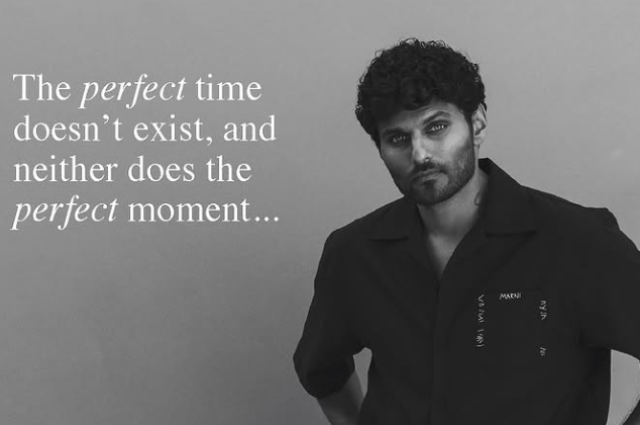Our society depends heavily on digital consumption, and social media shapes our thoughts and actions. Studies predict that by 2023, there will be 4.9 billion social media users globally. Additionally, it is anticipated that there will be 5.85 billion users globally by 2027. The rise of the virtual world has sparked the rise of celebrities and media ambassadors who are creating communities around the content they sell and earning enormous sums of money from the consumption of their works, which are enhanced by sophisticated algorithms. Today's capitalism is creating an open market where anyone can take advantage of it through digital platforms.
However, as our digital connections increase, the loneliness that permeates our physical lives frequently leads to mental illness. According to a recent study, eating reels every day is now considered a neurotic disorder. In actuality, the absence of real and authentic connection is making us crave the dopamine rush that comes from constantly consuming social media. With a plethora of wellness gurus claiming to inspire and be changemakers who wish to improve society, self-help and wellness content have begun to take over the internet in recent years. Contradictory viewpoints are common on social media, where users follow misogynistic alpha creators like Joe Rogans and Andrew Tate as well as creators who support holistic living and wellness like Jay Shetty and Dhar Mann. This raises the question, "Can we trust them for creating authentic and transparent content? The wellness guru Jay Shetty's beliefs and his business strategy of creating self-help content that aids in community building are examined in this article.
The Early Life of Jay Shetty
At business school, Shetty got to know Gauranga Das, a monk who was invited to give a talk about living a simple life and being selfless. And living a modest lifestyle. According to Shetty, she lived the life of a Vedic monk for three years at an ashram in Mumbai, India, and completed four summers of business internships and training with the International Society for Krishna Consciousness, also referred to as the Hare Krishna movement or Hare Krishnas.
Jay Shetty began his career at Accenture, where he coached the company's executives on social media and worked on digital strategy. Shetty took home awards from the 2016 ITV Asian Media Awards and the 2018 Streamy Awards. In 2019, Jay Shetty launched the On Purpose podcast. In its first year, 64 million people downloaded the podcast.
The Game of Authenticity and Transparency: An Analysis of Jay Shetty's Content
You can develop a mindset just as easily as you can build muscle. According to the proverb, "Solidarity is the power of solitude." The power of will is greatly outweighed by the power of love. With his books, podcast, and tea brand, Jay Shetty and his wife, as well as wellness content creator Radhi Devlukia, are incredibly popular. Their enormous likeability is undeniable. However, the authenticity of his productions is a legitimate question as we dig deeper into his work and the brand he creates for himself. Nicole Arbour accuses Jay Shetty, a motivational speaker and former monk, of content piracy in her YouTube video.
She also claims that Shetty sells mass-market motivational content without properly citing the original author. Many of his quotes, according to the YouTube video, were lifted from well-known online poets, authors, and writers and attributed to him. This is also interesting because the YouTuber brought up Brendon Burchard, a well-known author and writer who replied to Jay Shetty's social media posts and suggested that he give credit to the content's rightful and accountable creator. The YouTuber further claimed that the picture he used to attempt to demonstrate his monastic status showed him in an orange hoodie rather than the orange clothing of a monk.
Although there is some doubt about whether he was a monk or not, the video asserts that other authors and writers on the internet copied his work. Plagiarism and copyright violations are serious issues that make up a greater portion of cybercrimes. The video claims that Think Like a Monk, an all-time best-seller, is used as bait to attract a wider audience to promote his motivational content, which is a collection of the ideas and opinions of other outstanding writers and authors.
The sad reality about self-help books and motivational gurus
Once the route to enlightenment, self-improvement has now turned into a lucrative industry for self-help gurus who prey on people's fears by promising to improve them but just enriching themselves. Big industry names and self-help gurus have capitalized on the idea of self-improvement, which has led to toxic positivity and an addiction to self-help content. Without a doubt, Jay Shetty is building a brand. Since leaving the ashram, he has evolved into a hybrid influencer and life coach who uses Facebook, YouTube, and Instagram to share knowledge with millions of people. These content producers claim to be able to heal the world by promoting self-help goals, but we must also remember that they are not qualified or licensed mental health specialists who can provide us with logical advice.
Conclusion
Even though self-help content and influencers like Jay Shetty are pushing concepts of personality development and self-improvisation, it's critical to realize that addiction to any kind of external stimuli for internal healing and action never leads to anything positive. The billion-dollar self-help industry focuses on band-aid solutions that only momentarily lift customers' spirits while ignoring the underlying causes of issues. A vicious cycle of dissatisfaction and product dependence results from this. It's past time we realized that these social media influencers who purport to uplift and support their followers are using wellness as a cover for their self-serving agendas. Internal realization and action toward our goals are the only ways to better yourself and your personal development.

